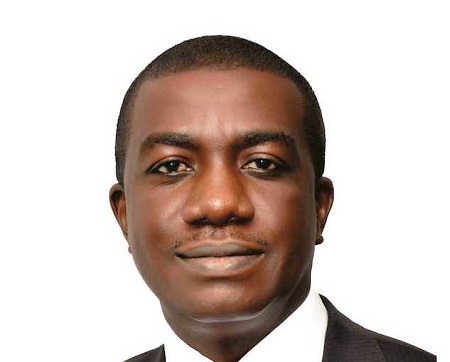Since it commenced operations in 2017, Development Bank of Nigeria (DBN) has disbursed loans totalling N70 billion to 50,000 micro, small and medium enterprises.
Board Chairman of the bank, Dr. Shehu Yahaya who spoke at the opening ceremony of inaugural DBN Lecture series in Abuja on Monday also revealed that the bank was working to expand its capital base in the next two years and that Federal Government will also ultimately divest from it.
“In the short period since the DBN became operational in late 2017, it has already established a strong record for effectiveness and professionalism as evidenced by PFIs”. From the African Development Bank Annual Supervision Mission in July 2019, I quote “Four PFIs visited during the mission expressed their overall satisfaction with DBN operations, describing them as prompt and responsive.”
According to Yahaya, the new capital expansion “will involve the establishment of a credit guarantee company that will help guarantee some of the lendings from commercial banks so that they can use much more of their resources to support MSMEs sector. That way we can expand the business substantially.
In a keynote address, former President of African Development Bank (AfDB), Dr Donald Kaberuka appealed to DBN and other development Banks to “resolve market failures in a market-friendly way, and diversify the funding base not to be too reliant on the state.”
He insisted that DBN “must be free to take sound independent investment decisions under the authority of Boards that assure a good oversight.”
ALSO READ: Two ministers from ‘5%’ states confirms Buhari’s democratic credentials ― Oshiomhole
Also speaking, Permanent Secretary, federal ministry of finance, Dr. Mahmoud Isa-Dutse said Federal Government reckon with Micro, Small and Medium Scale Enterprises as the largest employer of labour in Nigeria.
“In many developed nations across the world, governments now recognise the emerging power of MSMEs and go further to assist them with favourable policies, plans, and programs to enable their success. That narrative is also changing in Africa and Nigeria is taking the lead.
“Since the inception of President Muhammadu Buhari’s administration, the government has recognised the need to pay the utmost attention to the MSMEs because they account for almost 60 per cent of Nigeria’s GDP. This administration has demonstrated a willingness to develop this sector, by either enacting laws or setting up government agencies and institutions to address the challenges faced by the various stakeholders in this critical sector of the economy,” he said.
Earlier in his welcome address, DBN’s Managing Director, Mr. Tony Okpanachi said statistics have shown that “across the continent, and many global economies, MSMEs are the bedrock of economic growth and development because of the critical role they play in accelerating economic transformation and industrialisation.
“In Nigeria, he said recent data released by both SMEDAN and National Bureau of Statistics (NBC) have confirmed that there are about 41.5million MSMEs in Nigeria and collectively they contribute to well over 50 per cent of Nigeria’s GDP.
“However, access to finance is still a concern for this critical segment of the economy. The latest figure indicates that at the Micro level, about 90.5 per cent do not have access to credit whilst the figure for SMEs is put at 67.9 per cent.
“The bank also performed well in rendering assistance in power and water supply – 83.5% as well as tax rate reduction – 73.1 per cent.”
WATCH TOP VIDEOS FROM NIGERIAN TRIBUNE TV
- Relationship Hangout: Public vs Private Proposals – Which Truly Wins in Love?
- “No” Is a Complete Sentence: Why You Should Stop Feeling Guilty
- Relationship Hangout: Friendship Talk 2025 – How to Be a Good Friend & Big Questions on Friendship
- Police Overpower Armed Robbers in Ibadan After Fierce Struggle






